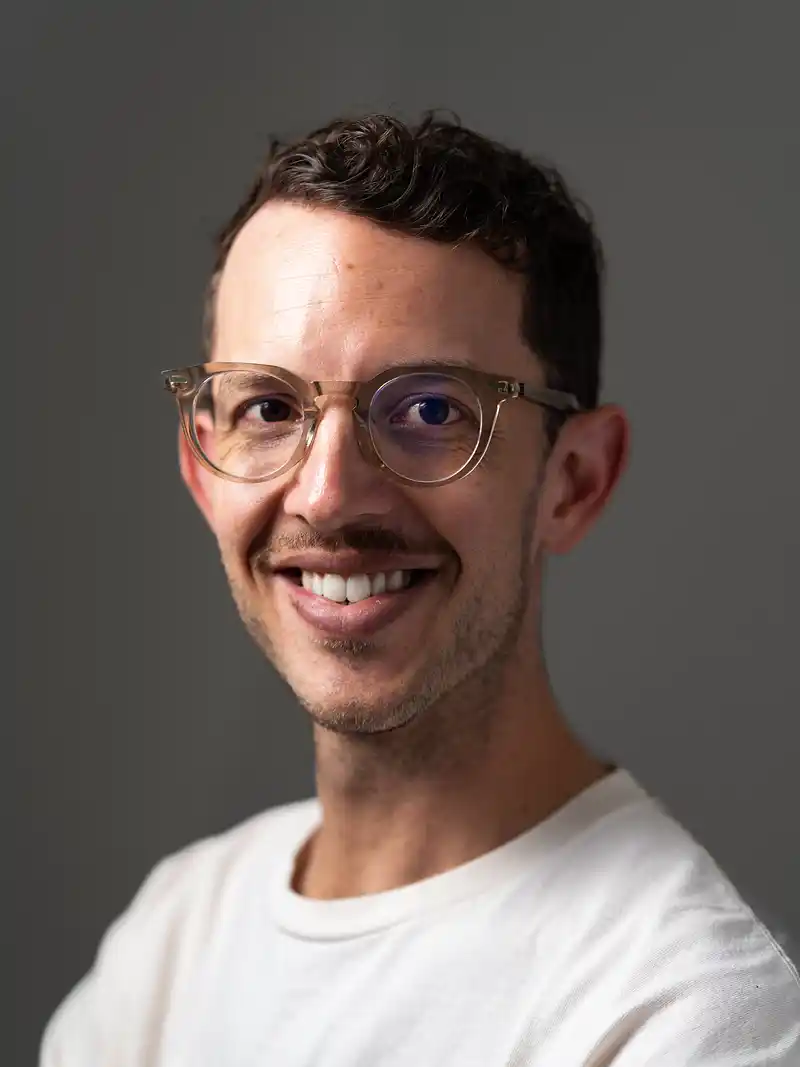Born of the vivacity and flashiness of the 1980s, a novel wave of music once became the symbol for a whole generation of Vietnamese, and then faded into obscurity at its peak. It took over two decades for this golden era to resurface thanks to the efforts of young musicians.
This is the story of Dan Nguyễn, the ups and downs of Vwave, and the cultural identity of Vietnamese in the post-war US.
From a young Vietnamese boy with a penchant for drawing…
Dan Nguyễn, better known by his stage name Demon Slayer, is a Vietnamese-American visual artist, music producer, and DJ. Dan was born and raised in the Vietnamese community living in Riverside in Southern California.
“I’m a first-generation immigrant, meaning the first person in a family who was born in the US,” he tells Saigoneer in a call. “I’ve loved drawing since I was little. I’m not sure where I got that, because no one in my family is an artist.”

As Dan Nguyễn grew up, a passion for creativity continued pushing him forward.
After the war, his parents and relatives fled to the US, hoping to build a new life. Like many other Asian families, they did not approve of their children’s artistic pursuits: “They wanted me to have a traditional career like a doctor or a lawyer, so when I was young I only drew for fun. Studying was the first priority.”
Still, a passion for creativity pushed him toward different artistic outlets. As an adult, Dan not only continues to paint and organize exhibitions, but also explore other artistic endeavors. “My brothers and uncles introduced me to all sorts of music. Songs with distinctive flairs from the 1980s. So, since I was in high school, I started DJ-ing and performing at music shows.”
When music becomes the voice of a generation
In the wide repertoire of music that Dan inherited from older members of the household, Vwave tracks, also known as Vietnamese New Wave, left the strongest impressions. Featuring a pounding bass, enthralling synth, and campy vintage fashion, Vwave embodies the broad-minded, quixotic, and highly individualistic spirits that guided youths from the 1980s.

Vwave embodies the broad-minded, quixotic, and highly individualistic spirits that guided youths from the 1980s.
“Vwave is a music and fashion trend from the 80s and 90s. The trend started in Orange County’s Little Saigon, home of the Vietnamese diaspora and Vietnamese who recently relocated to California,” Dan says.
Vwave was the result of a paradigm shift from New Wave — a genre that dominated radio charts in western markets at the time, through hits from The Smiths or a-ha. At public venues like bars and coffee shops in Little Saigon, Vietnamese bands would cover famous New Wave chart-toppers in the Vietnamese language. This excited the local community as, for the first time, they could relish foreign songs in their mother tongue.

Vietnamese New Wave found its start in VHS and cassette tapes containing covers of trendy English-language songs of the time.
“For the first time, Vietnamese realized that there were musicians and cultural products created just for them,” he added. A musical revolution then brewed in Little Saigon. The number of lounges, bars, and concert venues dedicated to Vwave skyrocketed, propelling the birth of record labels and labels to cater to both singers and listeners. Music shop owners stocked and sold CDs and cassettes to those who were never exposed to Vwave. “It was like this cultural ecosystem that Vietnamese created for themselves.”
Nonetheless, Vwave wasn’t just a carbon-copy of New Wave, which was a genre with clear pop-rock influences. Vwave was a genre that formed from elements of pop, rock, dance, ballad, bolero, cha-cha-chá, etc. They were usually lumped together by artists as they shared a common attribute: Vietnamization. Eventually, the genre expanded from just translated covers of English-language songs to original tracks composed by Vwave musicians, like ‘Bên Nhau Ngày Vui’ by Lam Phương and ‘Bên Nhau Ngày Vui’ by Quốc Dũng.


Overseas Vwave stars like Lynda Trang Đài, Trizzie Phương Trinh and Tuấn Anh gained fame even on mainland Vietnam.
“At the time, many Vietnamese just migrated to the US, and they didn’t know anyone nor understand local culture, but when they turned on the radio, they could still feel the energy of a melody, whether it was sad or exciting. Vwave marked one of the first cultural milestones for Vietnamese in this new foreign land, because it’s them taking the music of this era and turning it into their own,” he explains. This was also the foundation for younger generations of Vietnamese musicians to discover new realms of music like rap, hip-hop and EDM, Dan says.
Just by performing Vwave songs, several stars even managed to transcend language and ethnic barriers to be recognized by the showbiz scene outside of the Vietnamese community: “When I was young, there was a very famous Vwave singer named Shere Thu Thủy. She truly was the first Vietnamese-American popstar. She was featured on MTV, which was a huge deal, because this was a time when you don’t see Asians on MTV at all. My family — my parents, grandparents, uncles and aunts — they all felt the pride. My mom even said: ‘Cái cô này, she represents us!’”
Alas, when the early 2000s came, CDs and cassettes were gradually replaced by streaming services, and Vwave fever also died down because production crews and musicians couldn’t keep up with the dizzying changes of the music industry. The genre’s spread was reduced and limited to small “Vwave parties” organized for listeners from older generations. Most young Vietnamese from Gen Y and Z perceive Vwave as a genre of cheesy, kitschy music that’s completely outdated in today’s music landscape.
15 years to rewind the tape of time
In 2007, Dan Nguyễn was a successful DJ who performed at international shows. Still, no matter where he performed, there remained a nagging concern in his mind over forming a connection with Vietnamese culture. When Dan draws, he tries to weave in subjects relating to Vietnam in his works; and while he DJ-s, he always includes two or three Vietnamese songs in his set. “I stumbled upon a problem,” Dan says. “I can’t find Vietnamese songs outside Vinahouse and ‘gangsta rap.’”
The collection of Vwave tapes and CDs amassed by his family popped into his mind, so Dan decided to “excavate” this lost treasure. “These mediums are quite dated, I digitized them and gave them fresh arrangements to increase the sound quality,” he explains. The result was a one-of-a-kind library of Vwave tracks that Dan has since introduced to audiences in Vietnam and elsewhere. “When I play these tracks in Vietnam, some fans even run up to me asking ‘Anh ơi, what song is this, so good!’”
To create the remix versions, Dan had to curate and splice together over 200 songs based on three key criteria. First, the song must have a fiery beat and percussion so listeners can bop along in clubs. Second, it must have Vietnamese lyrics, because he doesn’t want to play English-language covers. And third, it must possess a certain edge and “cool factor.” These are because Dan wants to challenge the prejudice that “Vwave is cheesy” and to give credit to the uncles and brothers who introduced the genre to him.

The creation of the Vwave mixtape is a homage by Dan Nguyễn to the culture and family of Vietnamese.
“They were such baddasses! They would not be bullied by racists and even fought back with: ‘F*ck you! We’re Vietnamese!' For me, that rebellious spirit was the heart and soul of Vwave.”
The initial plan aimed to have a complete mixtape ready in 2014, but this was delayed for many years because Dan couldn’t connect with past labels to get permission to use the recordings. “I went to 50–60 music stores in Little Saigon to search for leads. Some owners even planned to throw all the Vwave discs away because they were so old. But when I came looking, they gave me so many for free. I tried to contact the numbers printed on the covers but no one answered.”
It wasn’t until 2021 when Dan’s search started bearing fruit — he managed to find the original musicians of the songs. A number of performers have pursued new paths unrelated to music. “I was gushing: ‘Thank you so much, your music changed my life.’ But some just casually replied ‘Oh thanks con’ and went back to their current life, a cơm tấm or bánh mì restaurant somewhere. But a few were overjoyed that I was bringing this kind of music and era back to the kids.”
With permission from the OGs, the mixtape “Vwave - Rare Vietnamese New Wave 1980s,” featuring the first seven tracks of Dan’s collection, was officially released to the public — to a very positive reception. A few young fans messaged Dan after listening to the album with their parents, saying that they cried together because they were so moved. Some Vietnamese fans in Australia and France thanked him for aiding in their discovery of a very delightful aspect of Vietnamese culture.
(He also isn't the only Vietnamese-American working to give Vwave more relevance to younger generations.)
According to Dan, in a few months he will release the second mixtape, and a few more are on the horizon so “listeners everywhere always have good Vietnamese music to look forward to.” Through the Vwave series, he wishes to send a message to the world:
“The media always depicts Vietnam via a tragic lens via the war and refugees, or a culinary angle on phở and bánh mì. But parallel to that, Vietnamese were always producing amazing arts then, and we are still doing so now. So I hope that we can continue that creativity, just like what Vwave did. Above all, I really want to see us embrace our Vietnamese-ness to write our own narrative.”
Listen to Dan Nguyễn’s mixtape on Bandcamp and SoundCloud. Follow him here for updates on Dan’s creative works.

















